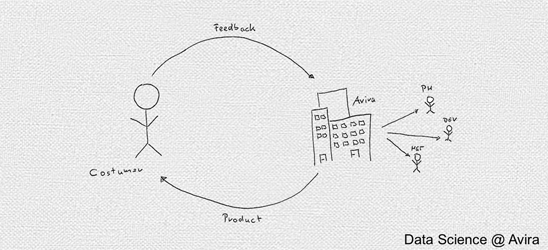Nothing is ever certain about our future, but when it comes to privacy, we can take a look at current trends and make some educated guesses as to what we will see tomorrow, next year, or even in 10 years’ time…
Looking at those trends, it’s clear that no matter how people’s privacy is violated and taken away, there will always be new tools to help protect it combat them and most important of all, keep people in control of their own privacy.
Innovation helps both sides of the spectrum and will lead to many games of cat and mouse moving forward into the future. To be more specific though I see two primary areas where privacy will be influenced the most in the future: anonymity and user owned data.
Anonymity
Being anonymous is one of the hardest things to do, if not impossible, in this day and age. With the prevalence of online tracking, government surveillance, and login systems everywhere it is very difficult to keep things to yourself unless you are willing to forgo the online world. While there are many services that start to offer “anonymous†services such as Secret and Telegram, there is always something that is connecting your device to the posts you do or the interactions you make. That’s why I see a future where pseudo-anonymity is commonplace.
Pseudo-anonymity would allow people to be anonymous to others and possibly to the application they are interacting with, but still be able to put together a profile and have an account. Adopting a pseudo-anonymous system has potential far beyond simple messaging apps and in something like Bitcoin, has the potential to really change the world.
In Bitcoin, everyone has a public address where you can see where Bitcoins are being sent to and from, and follow transactions very publicly, but you can’t actually identify the person that has the addresses unless they specifically tell you. This form of pseudo-anonymity is regarded as a positive step for privacy as it allows for direct audits and transparency of information while still letting individuals control their identifiable data.
Bitcoin is just one example of pseudo-anonymous technology, while even Facebook is taking steps to allow for Facebook login where apps cannot access your identity but rather just verify you are a person. It’s important I think to separate out task of verifying users as real people and learning their identities. That way we can have quality services supported by real users but without them having to sacrifice their privacy. Pseudo-anonymityis a good bridge for these two things.
User Owned Data
Right now as you browse the web there are dozens of companies that are collecting information about what you search for, what pages you visit, what you watch, and more. These companies make inferences about you such as your gender, income bracket, and marital status. They then sell this information to advertisers who will try to serve you with more relevant ads so that you are more inclined to click on them. This is the current status quo but it relies heavily on inferences and guesswork, which means there is a limit to how accurate the information can be.
Currently many companies have tried to bring user control to this aspect of online data collection, but nobody has truly succeeded. To get users to willingly hand over their data to companies, there needs to be a high enough value proposition for the users. Facebook and Google do a great job of this currently by providing free services that we use every day in return for data to be used for advertising. Other companies are still trying to crack the code on what would be valuable enough to these users. Online advertising is still in a high growth phase though and has a strong outlook to expand and grow into the future. Once advertising matures enough, it may become worth enough for other companies to be able to provide proper incentives to users in return for access to their data.
While nobody can predict the future we can help build the future we want to be a part of. The next time you sign up for a site or enter a competition in exchange for your email address and phone number, consider what information you are really giving up, who is getting access to it, and how it will be used. If we want a future where we are all more in control of our privacy we must start to take better care of our data.
If you have any ideas of what would be ideal in your future for privacy, let us know in the comments or drop us a line on our Facebook page at https://www.facebook.com/AVG.


![]()




